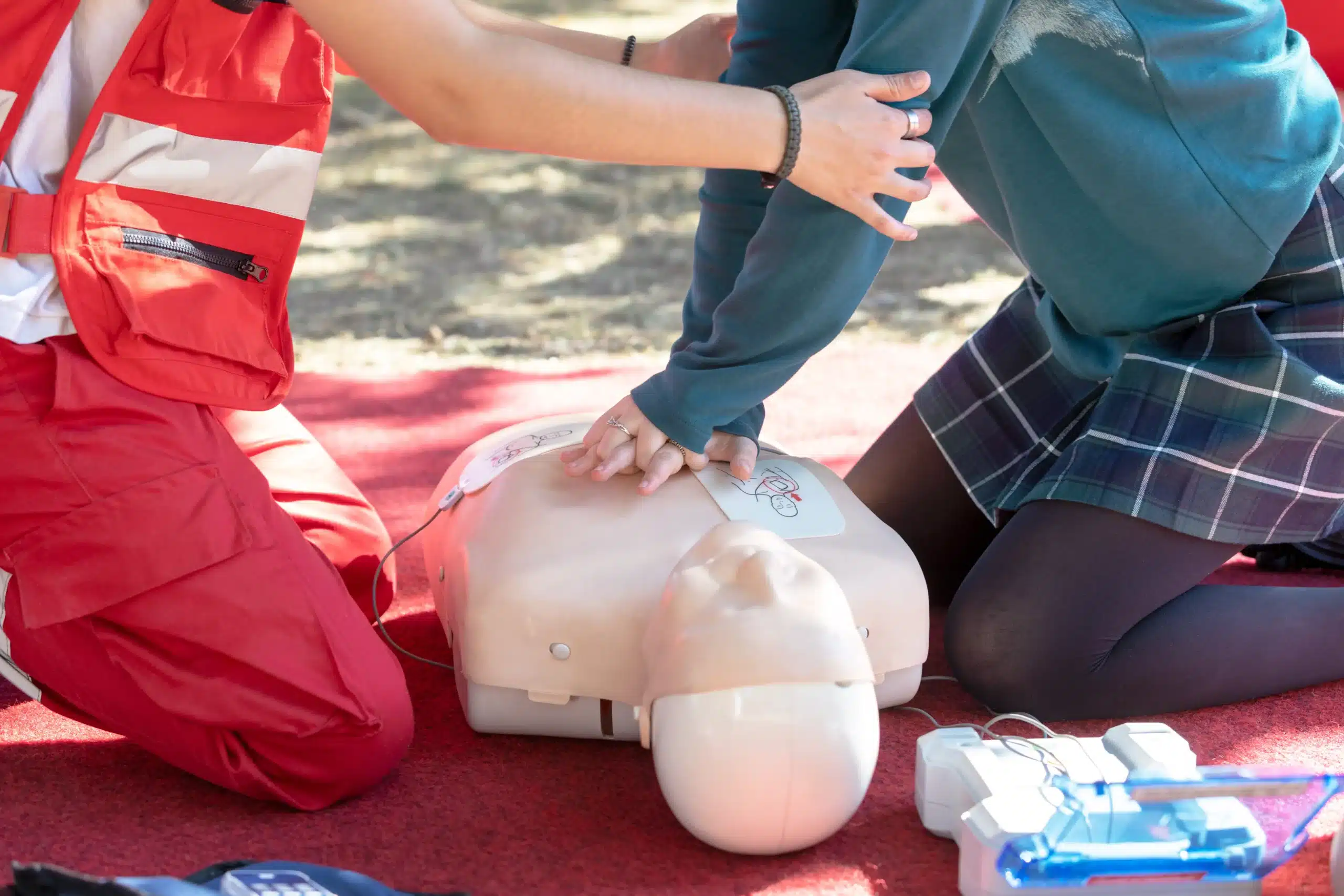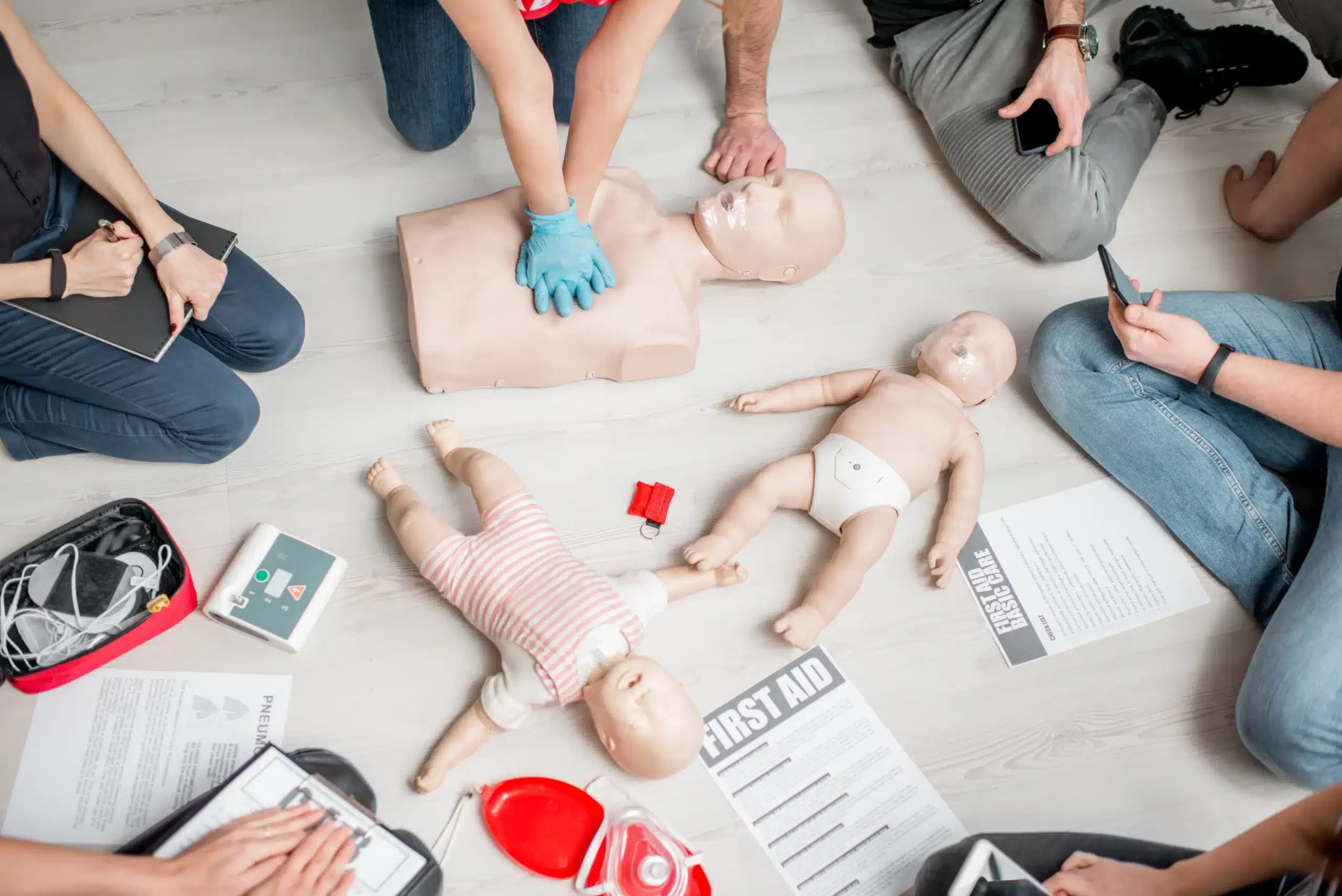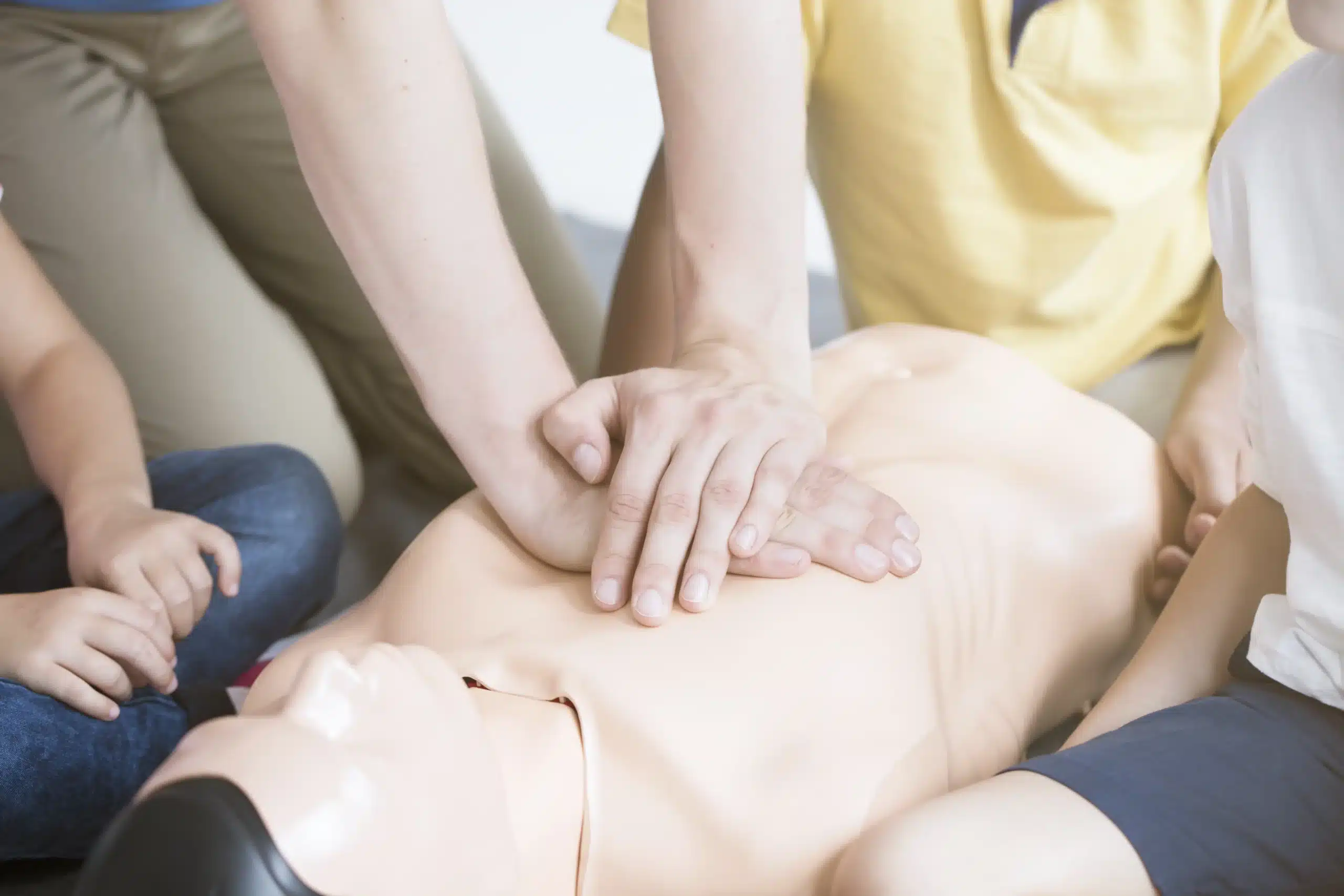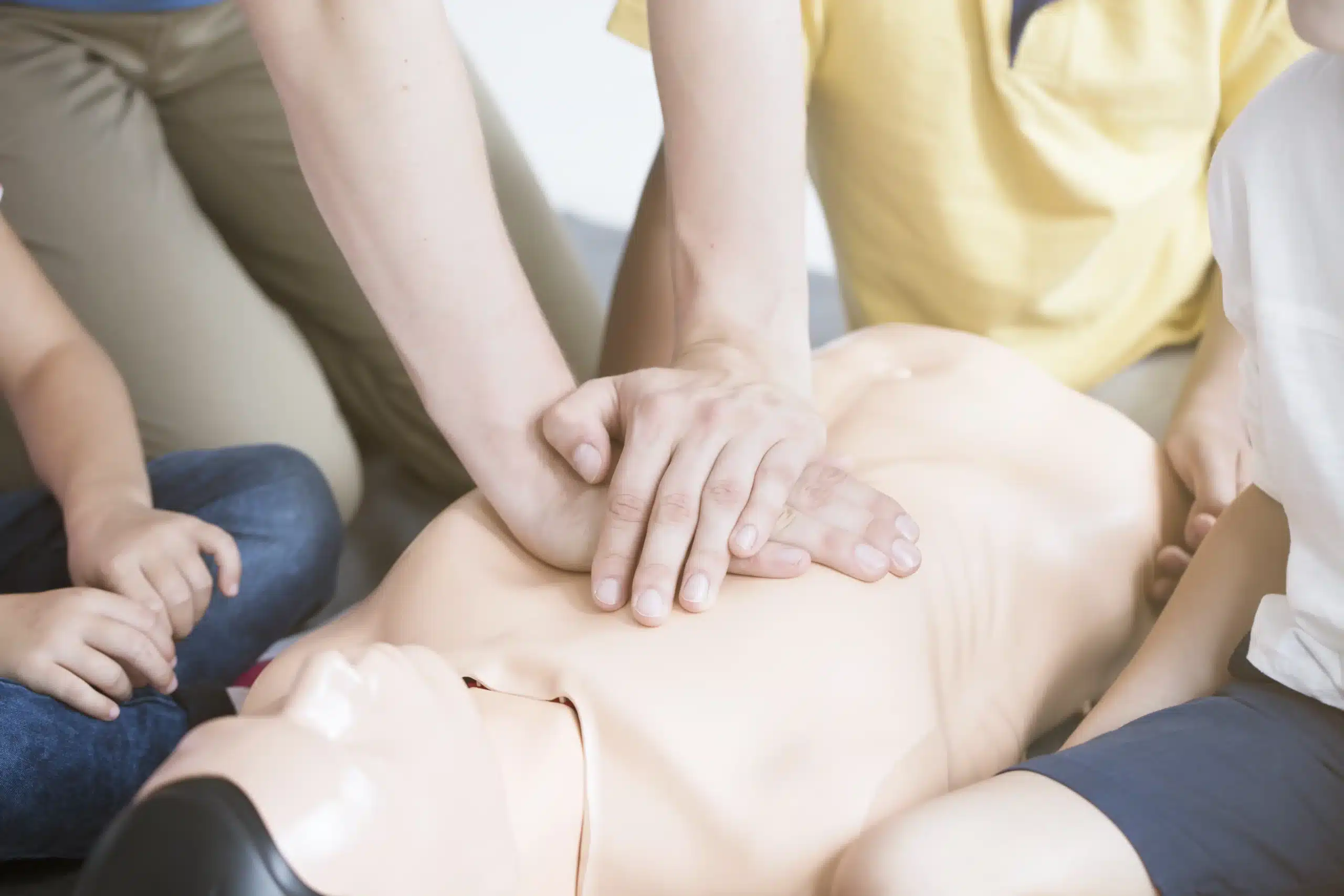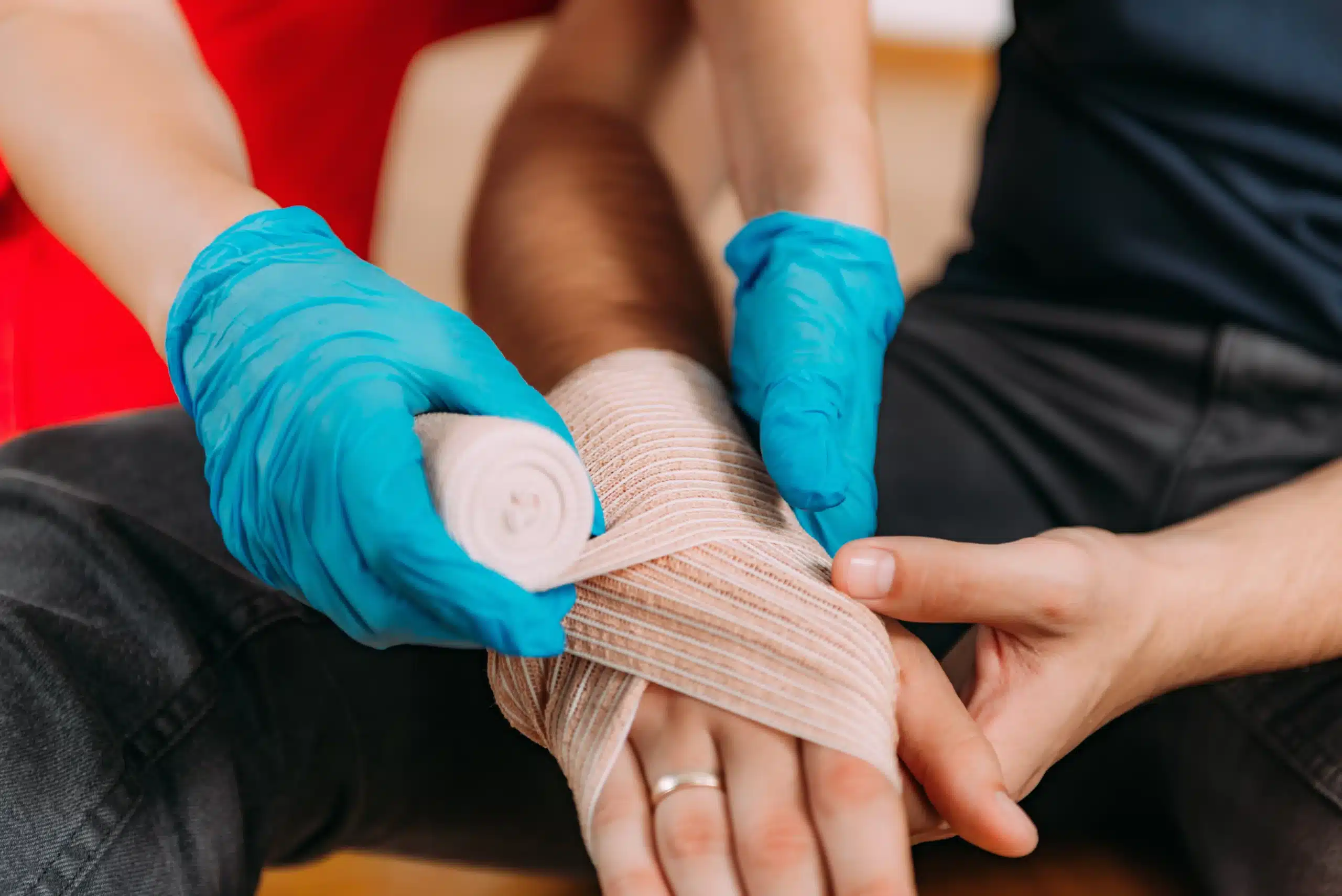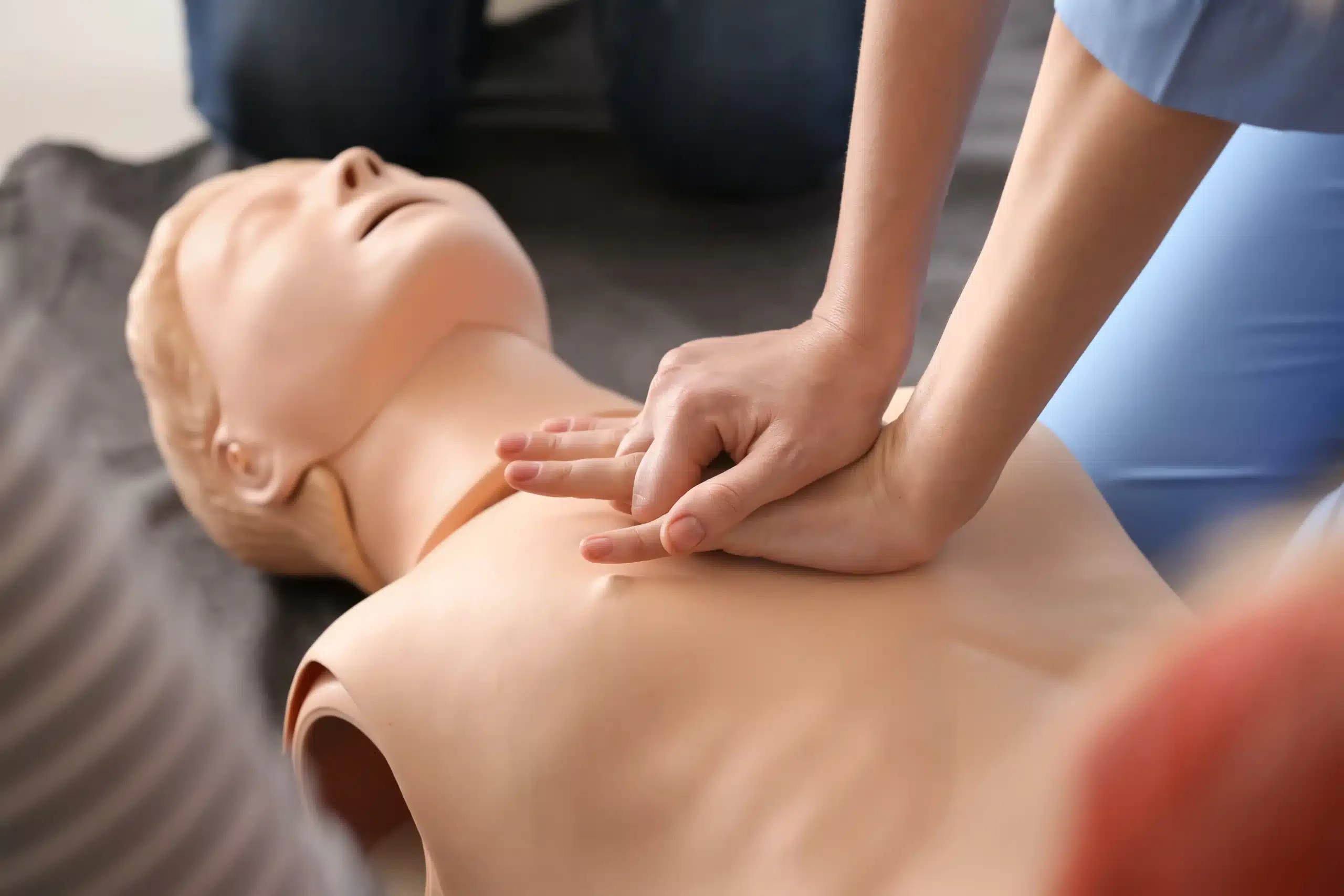Working in healthcare means being prepared for the unexpected. When it comes to children, that preparedness requires specialized training. Pediatric Advanced Life Support (PALS) certification empowers healthcare providers in San Jose to confidently and effectively manage pediatric emergencies. This guide offers a deep dive into PALS certification, exploring the curriculum, training options, and the long-term benefits of maintaining your certification. We’ll discuss the importance of PALS in career advancement, highlight reputable training providers in San Jose, and answer frequently asked questions to guide you through the certification process. Whether you’re seeking initial certification or looking to renew, this guide provides valuable resources and insights into the world of pediatric advanced life support in San Jose.
Key Takeaways
- PALS equips you with life-saving pediatric emergency skills. Find a course that blends online learning with hands-on practice for a well-rounded learning experience.
- Choose a PALS course that fits your busy schedule. Many providers offer flexible options, including weekend and evening classes, as well as hybrid formats.
- Maintain your PALS certification to stay current and advance your career. Renewal courses are typically shorter and help you stay up-to-date with the latest guidelines.
What is Pediatric Advanced Life Support (PALS)?
Pediatric Advanced Life Support (PALS) is a specialized training program that equips healthcare providers with the knowledge and skills to respond to life-threatening emergencies in infants and children. The program focuses on a systematic approach to pediatric assessment, basic life support, PALS treatment algorithms, and effective team dynamics. Early recognition and effective management of respiratory distress, shock, and cardiopulmonary arrest are key components of the training. PALS emphasizes the importance of early intervention and follows evidence-based protocols to improve outcomes for pediatric patients requiring immediate care. The American Heart Association (AHA) offers comprehensive PALS courses that meet these standards. Los Gatos CPR Classes also provides this vital PALS training for healthcare professionals in the San Jose area.
Key PALS Training Components
PALS courses typically involve a blended learning approach, combining online coursework with hands-on skills sessions and simulations. The online portion allows participants to learn the fundamental concepts and algorithms at their own pace. This is followed by in-person skills testing and scenario-based practice to reinforce learning and build proficiency in critical procedures. SureFire CPR offers a similar blended learning format. Contact your chosen provider for specifics on course formats, schedules, and costs.
Importance for Healthcare Providers
PALS certification is crucial for any healthcare professional involved in the care of infants and children. It provides essential skills and knowledge to effectively manage pediatric emergencies, from initial assessment and stabilization to advanced life support interventions. This specialized training empowers providers to confidently handle critical situations, potentially saving lives. The American Heart Association’s PALS program is widely recognized and respected, ensuring that certified providers are equipped with the most up-to-date guidelines and best practices. For healthcare providers in San Jose and surrounding areas, obtaining PALS certification demonstrates a commitment to providing high-quality care and enhances their professional credentials. You can find local PALS courses through providers like Los Gatos CPR Classes.
Top PALS Certification Providers in San Jose
Los Gatos CPR Classes
While Los Gatos CPR Classes is your go-to for CPR, BLS, ACLS, and First Aid training in the Los Gatos, San Jose, and Saratoga area, they don’t currently offer PALS certification. If you’re looking to brush up on other essential skills, check out their CPR and First Aid courses. They also offer group discounts, which is a great option for team training.
Other Reputable Local Providers
Finding the right PALS provider is key to getting high-quality training. Here are a few solid options in and around San Jose:
American Heart Association (AHA) Training Centers
The American Heart Association offers PALS certification classes throughout San Jose, giving healthcare professionals the skills they need to handle pediatric emergencies. AHA training centers are known for their thorough curriculum and commitment to the latest guidelines.
Emergency & Health Training Center
The Emergency & Health Training Center offers AHA-certified PALS renewal courses in San Jose. This concise six-hour class helps healthcare providers refresh their skills and maintain their certification, ensuring they’re always prepared for pediatric emergencies.
San Jose CPR Classes
San Jose CPR Classes offers daily AHA PALS classes, making scheduling a breeze. They also promote competitive rates, which could make them a good choice for budget-conscious individuals.
SureFire CPR
SureFire CPR offers both in-person and hybrid online/in-person PALS certification courses. This flexible approach lets you choose the learning style that works best for you, which is especially helpful for busy professionals.
PALS Course Structure and Options
Understanding the various PALS course formats and schedules available can help you choose the best fit for your needs. Let’s break down the typical structure and options you’ll find for PALS certification in San Jose.
Online and Hybrid Formats
Many providers offer a blend of online and in-person learning. You can typically complete the cognitive portion of the PALS course through online modules, working at your own pace. This self-directed learning offers flexibility for busy professionals. After finishing the online coursework, you’ll schedule an in-person skills session to demonstrate your proficiency. This hybrid approach combines the convenience of online learning with the essential hands-on practice. SureFire CPR is one example of a provider offering this blended format.
In-Person Skills Testing
Regardless of whether you choose a hybrid or entirely in-person course, the skills testing component is crucial. This session allows you to practice and demonstrate the techniques you learned in the course under the guidance of experienced healthcare professionals. These instructors can provide personalized feedback and ensure you’re fully prepared to apply your PALS knowledge in real-world scenarios.
Time Commitment for Initial and Renewal Courses
The time commitment for PALS certification varies depending on whether you’re taking the initial course or renewing your existing certification. Initial PALS courses generally require around 10 hours to complete, while renewal courses are typically shorter, around 6 hours. Factor this time commitment into your schedule when choosing a course. You can find more details on course lengths at SureFire CPR.
Flexible Scheduling
Providers understand that healthcare professionals have demanding schedules. Look for courses with flexible scheduling options, including weekend and evening classes, to find a time that works for you. The online portion of hybrid courses offers additional flexibility, allowing you to complete the coursework at your convenience. Skills testing sessions are also often available on various days and times, making it easier to fit into your busy schedule. San Jose CPR Classes is one provider known for its flexible scheduling.
PALS Certification Cost and Value in San Jose
Understanding the cost of PALS certification and what it includes can help you budget effectively and choose the right course for your needs. Let’s break down the typical pricing structure and explore available discounts.
Average Pricing and Inclusions
In San Jose, the average cost for PALS certification hovers around $275. This usually covers both the online learning portion, which typically takes 3-4 hours to complete, and the in-person skills session, lasting roughly 30-40 minutes. Many providers offer same-day certification cards upon successful completion of both components. This combined approach ensures you receive both the knowledge and practical skills necessary to respond confidently in a pediatric emergency. For a detailed breakdown of PALS course content, check out our section on what to expect during a PALS course. Looking for the best value? Our section on choosing the right PALS course offers helpful tips for finding a provider that meets your needs and budget.
Group Discounts and Promotions
If you’re enrolling with colleagues or friends, inquire about group discounts. Many providers offer reduced rates for groups of two or more, making it more affordable to train together. These discounts can vary, so it’s always a good idea to contact us or visit our website for specific details. Los Gatos CPR Classes offers competitive group discounts for various courses, including PALS.
Price Matching and Lowest Price Guarantees
Some training centers offer price matching or lowest price guarantees. This means they’ll match or beat a competitor’s price, ensuring you get the best possible deal. Before committing to a course, it’s worth checking if a provider offers a low price guarantee, like the one offered by Los Gatos CPR Classes. This can help you save money while still receiving high-quality training. For more ways to evaluate course quality, see our section on evaluating PALS course quality in San Jose.
PALS Certification Prerequisites and Requirements
Before you sign up for a Pediatric Advanced Life Support (PALS) course, it’s important to understand the prerequisites. Being prepared ensures you’re ready to make the most of your training. Here’s what you’ll need:
Current BLS Certification
You’ll need a current Basic Life Support (BLS) certification. This foundational knowledge is essential for all PALS participants, covering core life-saving techniques that form a base for advanced pediatric care. Make sure your BLS certification is valid before enrolling in a PALS course. Consider it the groundwork for building a solid understanding of pediatric care.
Online Pre-Course Work and Self-Assessment
Most PALS courses require preliminary online work, typically including video lessons and a self-assessment. Completing these steps beforehand allows you to focus on hands-on training during the course. It’s a smart way to familiarize yourself with the material and identify areas where you might want additional focus. Check with your chosen PALS provider for specifics on their online resources.
Access to the PALS Provider Manual
You’ll need access to the current PALS Provider Manual, your essential resource for course content and guidelines. It’s available as an eBook or paperback. Having the manual beforehand lets you review key concepts and prepare questions. You can usually purchase the PALS Provider Manual from the American Heart Association. This allows you to come to class prepared and ready to learn.
What to Expect During a PALS Course
Taking a PALS course is a rewarding experience, but what does it actually involve? Here’s a look at what you can expect, from the curriculum and hands-on practice to realistic simulations and same-day certification.
Curriculum Overview
The PALS course curriculum focuses on a systematic approach to pediatric assessment, treatment, and stabilization. You’ll learn to recognize and respond to cardiopulmonary arrest, shock, and respiratory emergencies in infants and children. The curriculum covers how to identify pediatric patients requiring immediate intervention and reviews early treatment and management protocols. Expect to cover topics like airway management, rhythm recognition, and vascular access.
Hands-on Practice
PALS courses aren’t just lectures; they emphasize hands-on learning. Experienced healthcare professionals, such as nurses, EMTs, paramedics, and firefighters often teach these courses, guiding you through practical skills and techniques. You’ll practice essential skills like chest compressions, ventilation, and medication administration on pediatric mannequins, building confidence and proficiency.
Simulation Scenarios
PALS courses use realistic simulation scenarios to prepare you for real-world emergencies. These scenarios allow you to apply your knowledge and skills in a controlled environment, working as part of a team to manage various pediatric emergencies. This simulation training bridges the gap between theory and practice, improving your critical thinking and decision-making in stressful situations.
Immediate Certification
After successfully completing the PALS course, including the written exam and skills demonstration, you’ll receive your PALS provider card the same day. This immediate certification lets you use your new skills right away, whether you’re a healthcare professional or a caregiver.
Evaluate PALS Course Quality in San Jose
Finding a high-quality PALS course is crucial for your professional development and your ability to provide effective care. Here’s what to look for when evaluating PALS courses in San Jose:
Accreditation and Instructor Qualifications
First, confirm the course is accredited by a recognized organization like the American Heart Association (AHA). This ensures the curriculum meets established standards. For example, SureFire CPR offers AHA-accredited PALS courses. In addition, research the instructors’ qualifications. Experienced healthcare professionals, such as nurses, EMTs, paramedics, and firefighters, often bring valuable real-world insights to the classroom. SureFire CPR highlights its roster of experienced healthcare providers.
Student Feedback and Satisfaction
Reading reviews and testimonials offers a glimpse into past students’ experiences. The Emergency & Health Training Center has earned positive student feedback, with one student awarding the course a 5-star rating and praising both the instructor and the balance of lecture and hands-on learning. Pay attention to comments about the instructor’s teaching style, the course’s organization, and the overall learning environment.
Course Effectiveness and Pass Rates
A course’s effectiveness is often reflected in its pass rates. SureFire CPR reports a 99.9% student pass rate, suggesting their methods prepare students well for the certification exam. Beyond pass rates, consider the program’s emphasis on practical skills and real-world application. SureFire CPR emphasizes a supportive learning environment, which can be a significant factor in student success. Look for programs that prioritize hands-on practice and scenario-based training to build confidence and competence.
Choose the Right PALS Course
Finding the right PALS course means considering several factors to ensure it fits your learning style, schedule, and budget. It’s a big decision, so take your time and explore your options.
Factors to Consider
Location and schedule are often top priorities. Los Gatos CPR Classes offers PALS certification in Los Gatos, convenient for those in San Jose and Saratoga, with classes offered daily. Other providers, like San Jose CPR Classes, also provide flexible schedules, often with classes seven days a week. This can be helpful for busy healthcare professionals. Think about the course format, too. Do you prefer a blended learning experience with online modules, or a traditional in-person class? Many providers offer hybrid options, allowing you to complete the coursework online at your own pace and then attend a shorter in-person skills session.
Questions to Ask Providers
Before signing up for a PALS course, gather information from different providers. Ask about their instructors’ qualifications. Are they seasoned healthcare professionals passionate about teaching? Inquire about the curriculum and materials. Does the course cover the latest AHA guidelines? SureFire CPR recommends considering supplemental courses like ECG and Pharmacology to deepen your understanding, so ask potential providers about similar prep resources. Also, check if they offer continuing education credits.
Satisfaction Guarantees and Retake Policies
A good PALS provider should stand behind their training. Look for providers like SureFire CPR that offer a satisfaction guarantee and a free retake if you don’t pass the first time. This shows their commitment to your success. Los Gatos CPR Classes also has a low price guarantee, so compare pricing and policies to find the best fit. Contact us if you have questions. Choosing the right PALS course is an investment in your career and the well-being of your patients.
Benefits and Maintaining PALS Certification
Holding a PALS certification is advantageous for healthcare providers. It demonstrates a commitment to high-quality pediatric care and can be a significant factor in career advancement. Many hospitals and healthcare facilities require PALS certification for specific roles, making it essential for those aiming to progress in their careers. Beyond specific job requirements, PALS certification shows employers you’re dedicated to providing excellent care for young patients.
Career Advancement Opportunities
PALS certification is often a prerequisite for jobs in emergency departments, pediatric intensive care units (PICUs), and other specialized pediatric settings. It can give you an edge when applying for positions and may lead to higher earning potential. As the healthcare field evolves, specialized certifications like PALS become even more valuable, highlighting your expertise and commitment to ongoing professional development.
Enhanced Pediatric Emergency Response Skills
The PALS course provides healthcare professionals with the skills to confidently manage pediatric emergencies. You’ll learn to quickly assess a child’s condition, identify the underlying cause of the emergency, and initiate appropriate treatment protocols. The training covers a wide range of pediatric emergencies, including respiratory distress, cardiac arrest, and shock, equipping you with the knowledge and practical skills to respond effectively. This translates to improved patient outcomes and increased confidence in your abilities as a healthcare provider. The course also emphasizes teamwork and communication, vital components of successful emergency response.
Renewal Requirements and Process
PALS certification is valid for two years. To maintain your certification, you’ll need to complete a PALS renewal course before it expires. Renewal courses are typically shorter than the initial certification, focusing on reinforcing key concepts and updating any changes in guidelines. You can expect a combination of online learning and hands-on skills testing, resulting in your renewed PALS certification card. Check with your chosen provider for specific renewal requirements and processes, including costs and scheduling. Some providers offer blended learning options that combine online coursework with in-person skills sessions, allowing you to fit the renewal process into your busy schedule.
Frequently Asked Questions about PALS in San Jose
Finding the right PALS certification course can feel overwhelming, so we’ve compiled answers to some common questions to help you make informed decisions. Hopefully, these FAQs clear up any confusion and point you in the right direction.
What is Pediatric Advanced Life Support (PALS)?
Pediatric Advanced Life Support (PALS) equips healthcare providers with the knowledge and skills to manage pediatric emergencies. The PALS curriculum, as explained by ScienceDirect, prepares physicians to recognize and respond to cardiopulmonary arrest, shock, and respiratory emergencies in infants and children. It teaches how to identify pediatric patients requiring immediate intervention and reviews early treatment and management protocols. This specialized training goes beyond basic life support, focusing on the unique physiological differences between children and adults.
How long is a PALS course?
The duration of a PALS course depends on the format and whether you’re taking the initial certification or recertifying. Initial PALS courses typically require around 10 hours, while renewal courses are shorter, around 6 hours, according to SureFire CPR. Hybrid PALS courses, combining online learning with in-person skills sessions, offer more flexibility. The online portion usually takes 2–4 hours, followed by a 15–30 minute in-person skills check.
What’s the difference between PALS and ALS?
While both PALS and ALS (Advanced Life Support) address advanced cardiac care, their focus differs. ALS training, as clarified by The American Red Cross, centers on adult patients, while PALS specifically addresses the needs of pediatric patients. This distinction is crucial because children have unique physiological characteristics that require specialized treatment in emergencies.
Is PALS harder than ACLS?
Many healthcare professionals holding both PALS and ACLS (Advanced Cardiovascular Life Support) certifications find neither inherently more difficult. They are simply distinct certifications with different focuses, as noted by eMedCert. The perceived difficulty often depends on individual learning styles and prior experience. Rather than focusing on which is “harder,” it’s more helpful to view both PALS and ACLS as essential for comprehensive care. Both require dedication and a commitment to mastering the necessary skills and knowledge.
Related Articles
- Pediatric Advanced Life Support (PALS) in Saratoga – Los Gatos CPR Classes
- AHA PALS Classes in Los Gatos, CA – Los Gatos CPR Classes
- CPR Certification in Los Gatos: Your Guide – Los Gatos CPR Classes
- Advanced Cardiac Life Support (ACLS) in San Jose – Los Gatos CPR Classes
- CPR, BLS, ACLS, PALS, and First-aid Courses in Los Gatos, CA
Frequently Asked Questions about PALS Certification
Is PALS certification required for all healthcare providers?
While not universally mandatory, many hospitals and healthcare facilities require PALS certification for specific roles involving the care of infants and children. Even if not strictly required, holding a PALS certification demonstrates a commitment to providing high-quality pediatric care and can significantly enhance your career prospects.
How do I find a reputable PALS provider in San Jose?
Start by checking the American Heart Association website for authorized training centers in your area. You can also research local providers online, paying close attention to student reviews and testimonials. Look for providers with experienced instructors, comprehensive curriculums, and flexible scheduling options. Don’t hesitate to contact providers directly to ask about their programs and what they offer.
What if I don’t pass the PALS course the first time?
Most reputable providers offer a free retake option if you don’t pass the initial PALS course. It’s always a good idea to clarify the retake policy with your chosen provider before enrolling. They can explain the process and any associated costs. Don’t be discouraged if you need a second attempt; the goal is to master the material and confidently apply it in real-world situations.
How much does PALS certification cost, and what does it include?
The cost of PALS certification varies depending on the provider and location. In San Jose, the average cost is around $275. This typically covers the study materials, online coursework (if applicable), in-person skills session, and the certification card. Some providers offer group discounts or price matching, so it’s worth inquiring about these options.
How can I fit PALS training into my busy schedule?
Many PALS providers offer flexible scheduling options, including weekend and evening classes, to accommodate busy professionals. Hybrid courses, which combine online learning with shorter in-person skills sessions, provide additional flexibility. The online portion allows you to complete the coursework at your own pace, fitting it around your other commitments.
